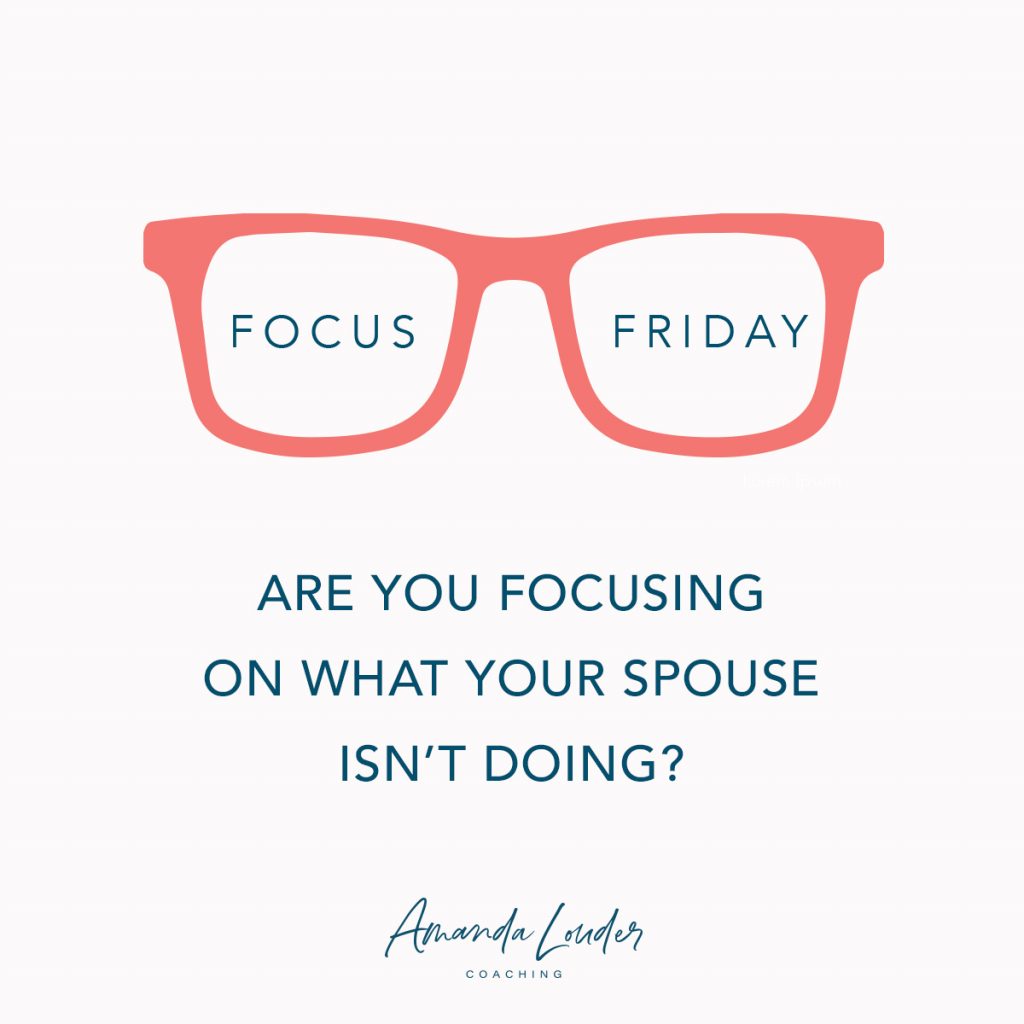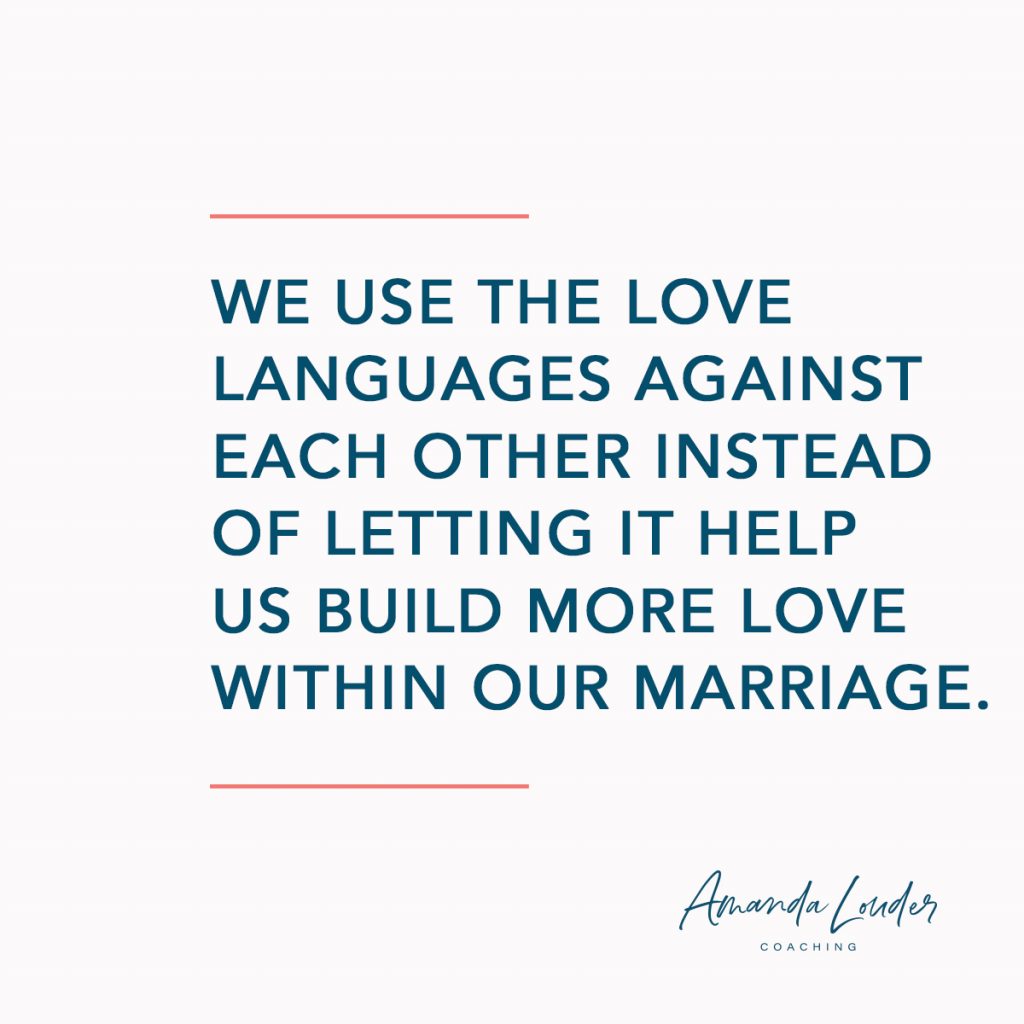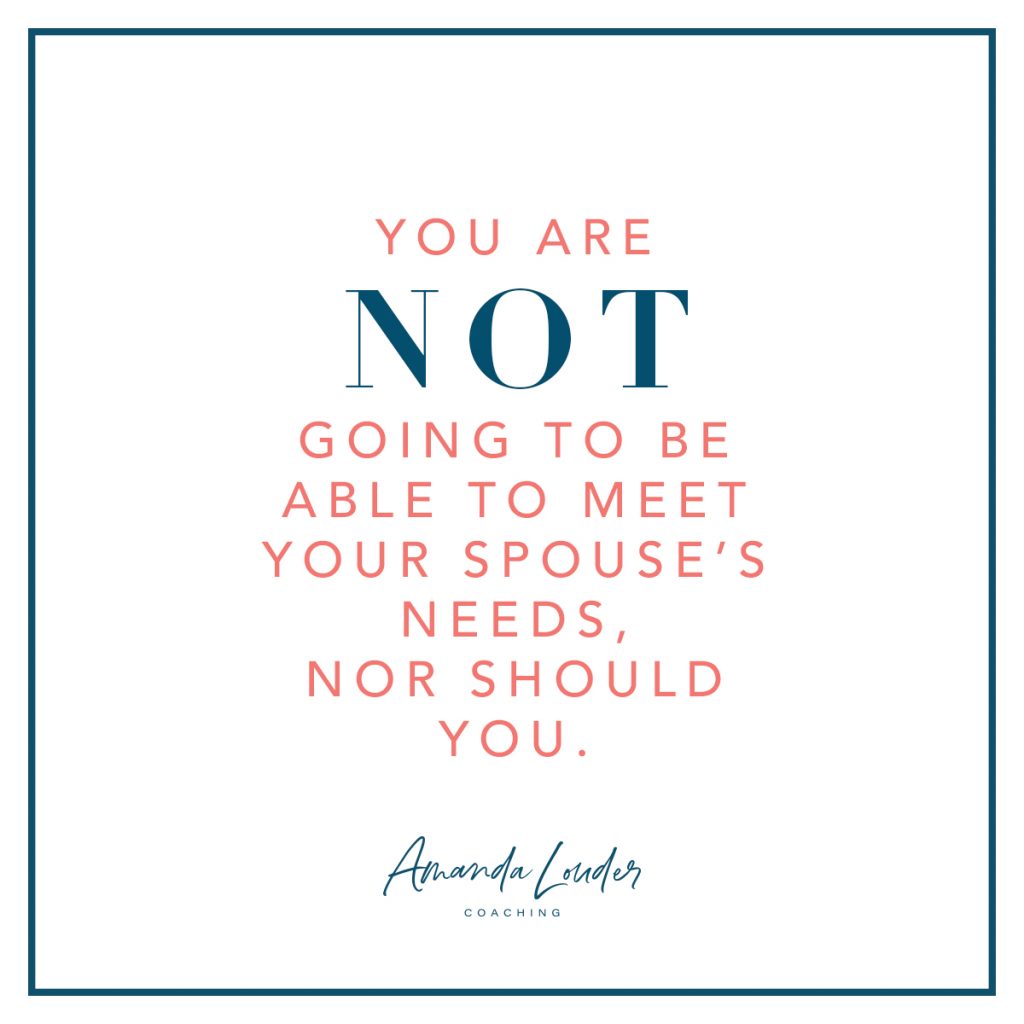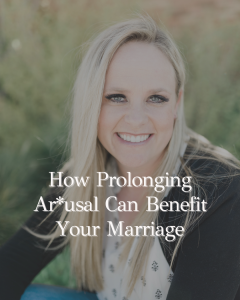
Unless you’ve been living under a rock, you’ve heard about the 5 Love Languages and how you need to figure out what your spouse’s love language is and give them love in that way. Now, there is some truth to this, but I also think that it often becomes a way to keep score to see who is the better partner. That’s not good for you or your marriage. In this episode, we talk about what is good for you and your marriage! You may be surprised by the answer.




Show Notes:
Follow Amanda on Facebook and Instagram.
Join Amanda’s Private Facebook Group.
References for this episode:
Show Summary:
Unless you’ve been living under a rock, you’ve probably at least heard of the five love languages. If you haven’t, let me give you a brief overview.
The five love languages was a book written by Dr. Gary Chapman. He has his doctorate in philosophy and degrees in adult education from Southwestern Baptist Theological Seminary. Primarily, he’s a pastor. He’s not a therapist but he does give people in his congregation what he called “marriage counseling.” His book The 5 Love Languages was originally published in 1992 and has seen several revisions and updates in the 29 years it’s been out.
In his book, Dr. Chapman outlines the 5 love languages.
- Quality Time
- Service
- Gifts
- Words of Affirmation
- Physical Touch
He also has tests and varying ways for people to find out their love language and tries to help them understand their partner’s love language.
The book is great in helping couples understand that “my partner is not me” and help couples find ways to understand and make room for someone who is different. Chapman encourages efforts to speak love in our partner’s language, not ours, and to give not what we want but what our partner wants…which is where I think we have a problem.
Yes, it can be helpful to understand yourself and your natural way of thinking when it comes to expressing and receiving love. It can also be helpful to understand the way your spouse expresses and receives love. When we can honestly do these for each other, it can create some great loving feelings and interactions. But I think it’s a problem when we expect our partner to understand the way we best receive love and give it to us in the way that we want instead of accepting their offering. We use the love languages against each other instead of letting it help us build more love within our marriage. Knowing that your partner is trying to show love, even if it isn’t being shown in a way that perfectly meets your needs, can go a long way. But we don’t do that. Essentially, we use love languages as a way of scorekeeping in the marriage.
When we look at “who does more” when it comes to love languages it becomes a competition or a way to check off who is being the better partner, which is never good.
Probably 90% of the women that come to me for a consultation say something along the lines of “my husband’s love language is physical affection and mine is ________” something else “and we just can’t seem to fill each other’s needs.”
Chapman talks about filling each other’s love tanks by bestowing our partner with acts of love in their love language. The way you do that is by learning your partner’s love language, and speaking that love language. It may be acts of service. It may be physical touch. When you learn your partner’s language, and speak it, then they will feel love. It will fill their tank.
If you’ve been listening to me for a while, you know that I believe that we can’t fill each other’s needs. When you try, it never works. In Episode 174 with Mike Peterson, he said that he wanted his wife to fill his bucket, but no matter what she did, it didn’t work because there was a hole in his bucket. He had to plug the hole, by taking care of his own needs, before it could be added to by his wife.
We each have unique ways of the BEST way we receive and express love. And instead of looking at all the ways your spouse isn’t doing what you want, we miss out on all the ways that they are expressing it in the best way that works for them. Essentially we are wanting our spouse to be different than they are, which doesn’t work.
Love languages are also not a universal salve. They won’t remedy the bad patterns we often get into as couples. Let me give you an example.
James wants sex. So he signals to Jane that it’s been a few days and what he wants. But Jane isn’t feeling that emotional connection she needs in order to engage physically. So instead of engaging, she withdraws. She tells him no. Faced with the rejection, James withdraws, maybe he pouts, and becomes disagreeable. She feels more abandoned and still doesn’t get the emotional connection she wants. And this loop goes on and on.
Giving gifts, words, or acts of service isn’t going to solve this. Maybe quality time if James and Jane both show up willing to talk. But if James is feeling neglected physically, he doesn’t want to engage emotionally. And Jane doesn’t want to engage physically unless he engages emotionally. Around and around we go.
And, even if James says “ok, let’s talk” then Jane often interprets that as “he’s just talking so I will have sex with him.” Which still doesn’t make her feel emotionally connected to him. And maybe he is. Because love languages can be used to manipulate our partner to get what we want. And if Jane engages physically, just to appease James, yes he might have his physical needs met but he isn’t getting the connection and intimacy he truly wants either. Love languages don’t solve this!
Linda Carrol, and Marriage and family therapist says –
“Love languages are a style of communication, a way to go about the day-to-day with your partner in a loving way. They teach us how to talk to our partners in stressful situations—but they don’t tell us what comes next.
“For example, the most painful problem couples have is that they lose one another; at the heart of most fights or withdrawal is a small, sad feeling of losing one’s best friend and a little voice wondering, “Where did you go?” This requires another skill to soften, repair, forgive, and find our way back to each other.
“People love the idea of a quick fix, but the human condition (which doubles in complexity within the context of a long-term relationship) doesn’t have a quick fix. A relationship requires an entire tool kit, not just a single tool. Alongside touch, quality time, words, and service, they also need honesty, trust, shared goals, and ways to repair and reconnect after the inevitable conflicts.”
So, that is why, in my program we work on all of these different skills. We learn how to be honest with ourselves and our partner, to trust ourselves, to communicate in better ways, to go back and repair when things don’t go the way we want them to.
I met with one of my clients and her husband this week in a private session. They both expressed that in the past they have had conflicts come up in their marriage and their parenting and one of the best things that they have learned through coaching is how to communicate better and maintain connection with each other through conflicts. They’ve noticed changes not only in themselves but also in how they are communicating with their kids as well as how their kids are communicating with each other.
Linda Carrol also said “A flourishing relationship begins with the mindful practice of knowing our own inner landscape and how to bring a healthier, clearer, more receptive, and more mature self to all our relationships, especially our most intimate ones.”
You are not going to be able to meet your spouse’s needs, nor should you. But what you can do is be able to show up better in your marriage for yourself and your spouse when you understand each other and be willing to look at what your partner is giving instead of focusing on what they aren’t. When you focus on what they aren’t bringing, this creates more disconnect in your marriage. But when you focus on what they are, that can create more connection and intimacy, even if it’s not in the language you would prefer.
If you want to get in my next group, so that you can learn these valuable skills, don’t wait! My next evening group starts Wednesday, October 6 at 7pm MT and my next day groups starts Wednesday, November 10 at 10am MT. In these groups I help you learn how to be honest with yourself and your spouse and start seeing things differently. Just like the couple I talked about earlier, this coaching can change everything in your marriage and your sexual relationship.



